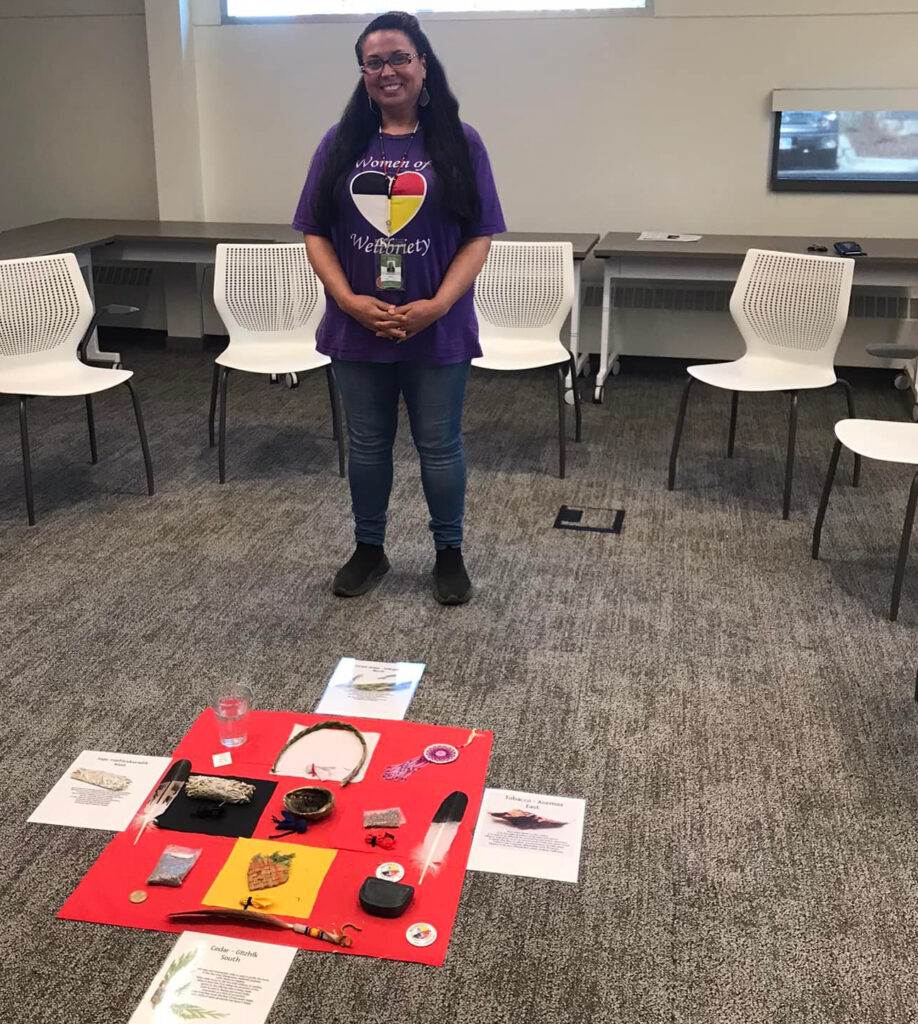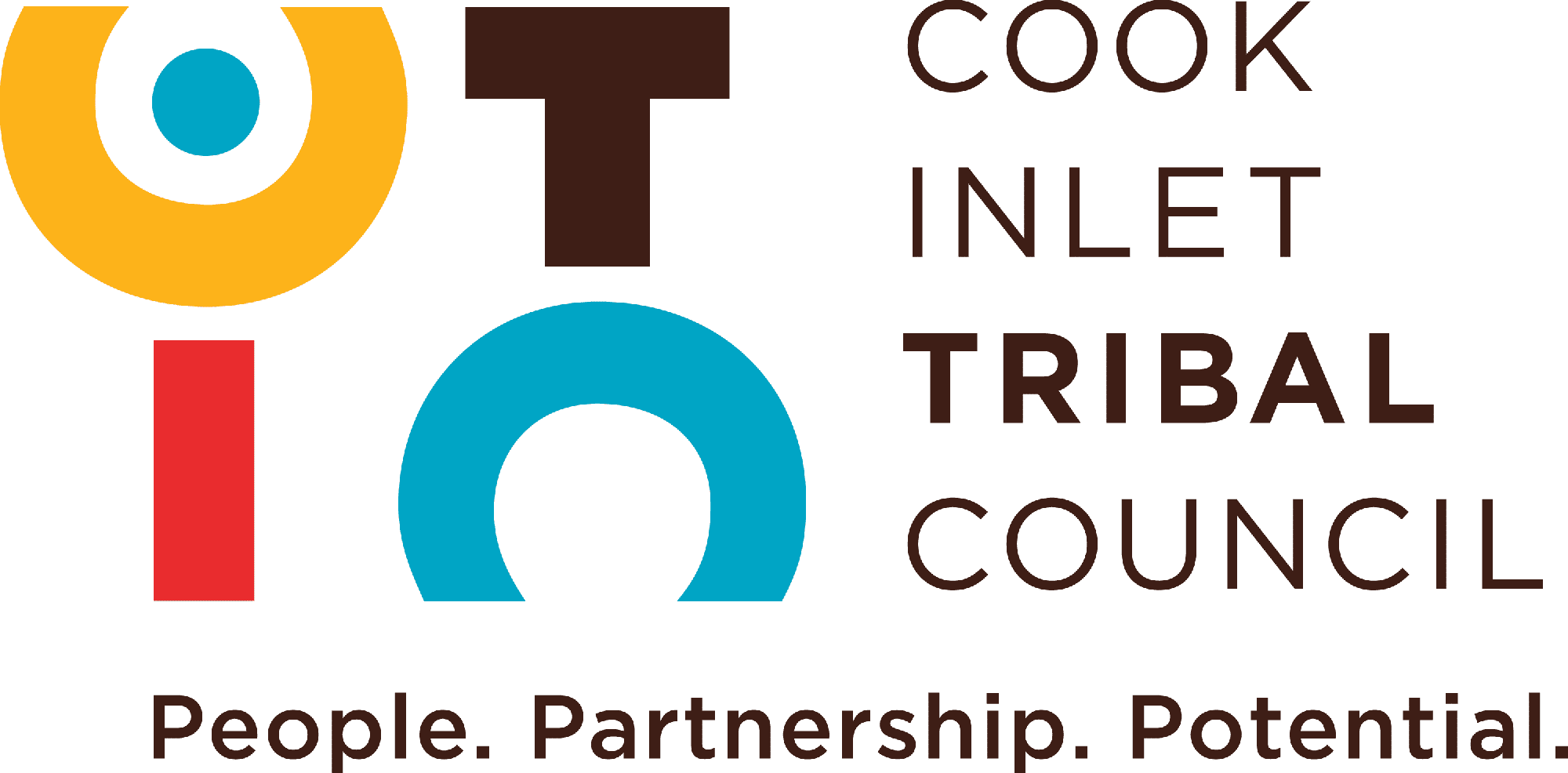04 Apr Filling in the Missing Piece
Wellbriety meetings at CITC provide a crucial connection to culture for those in recovery

Pick a day of the week. Odds are, whatever you choose, there’s a Wellbriety or Peer Support meeting of some kind taking place at CITC that day.
“These groups have grown in such popularity, we’ve added more to our calendar,” reported Casey Peavy, a Peer Support program manager with CITC’s Recovery Services department.
While Peer Support groups have been a norm at CITC for years, Wellbriety meetings are a more recent addition. The Wellbriety movement is a culturally based twelve-step program dedicated to offering sobriety, recovery, addition prevention, and wellness resources to the Native American/Alaska Native community. It was developed 26 years ago by Don Coyhis of the Mohican Nation, who wanted to raise awareness and treat alcoholism among American Indian youth.
Today, the Wellbriety movement is practiced all over the country, including at CITC.
Peer Recovery Supervisor Heidi Christensen first introduced Wellbriety programming at CITC after reading The Red Road to Wellbriety, a book that shares concepts like the Native American Medicine Wheel and the Twelve Step Tradition.
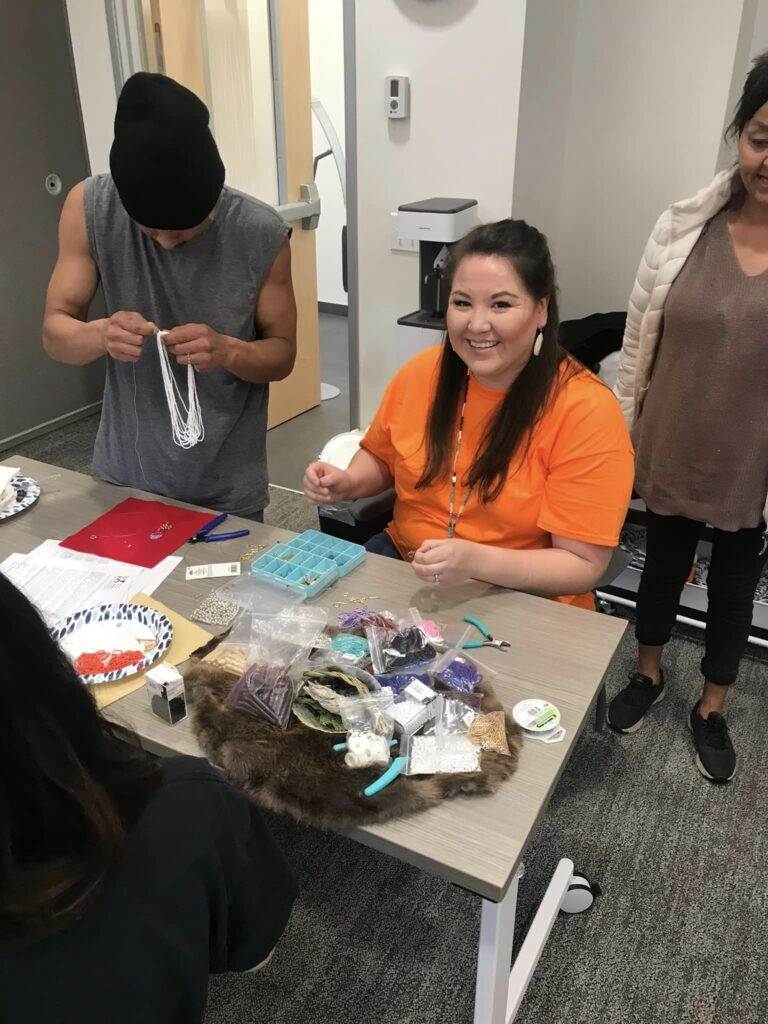
“Thumbing through it, I was like, Why aren’t we using this with the populations we serve?” Heidi recalled. “Our former department director took a chance and let me do a cultural group where I started implementing the teachings of Wellbriety. It kind of took off from there.”
Now, CITC’s Recovery Services staff includes six cultural Peer Support specialists who facilitate Wellbriety and support meetings and who each use traditions and knowledge from their cultural backgrounds to help others heal.
“Yaari [Walker] is Siberian Yup’ik, I’m Gwich’in and Aleutic, Israel [Gallegos] is Navajo and Mexican,” Heidi listed. “I think Wellbriety has been so successful here because in an urban area, people are so hungry for [a connection to] culture.”
“That’s one of the missing aspects of our lives,” added Tara Kern, another cultural Peer Support specialist. She’s Koyukon Athabascan, and she described how the boarding school system in Alaska became one of many factors that cut Alaska Native people off from their own culture.
“Boarding schools came and interrupted the family system, the community system,” she said. “So, coming back to our roots and getting reconnected to our culture, it gives us a sense of identity: who I am, why I am, and where I’m going.”
Wellbriety groups center culture in order to promote participants’ emotional, mental, physical, and spiritual wellness, in addition to supporting their sobriety. A typical Wellbriety group meeting is set up as a “sacred ceremony,” described Tara, opening with smudging and a prayer or song and drumming. The experience continues with a reading and a daily meditation; a feather is passed around by members of the group to indicate whose turn it is to speak.
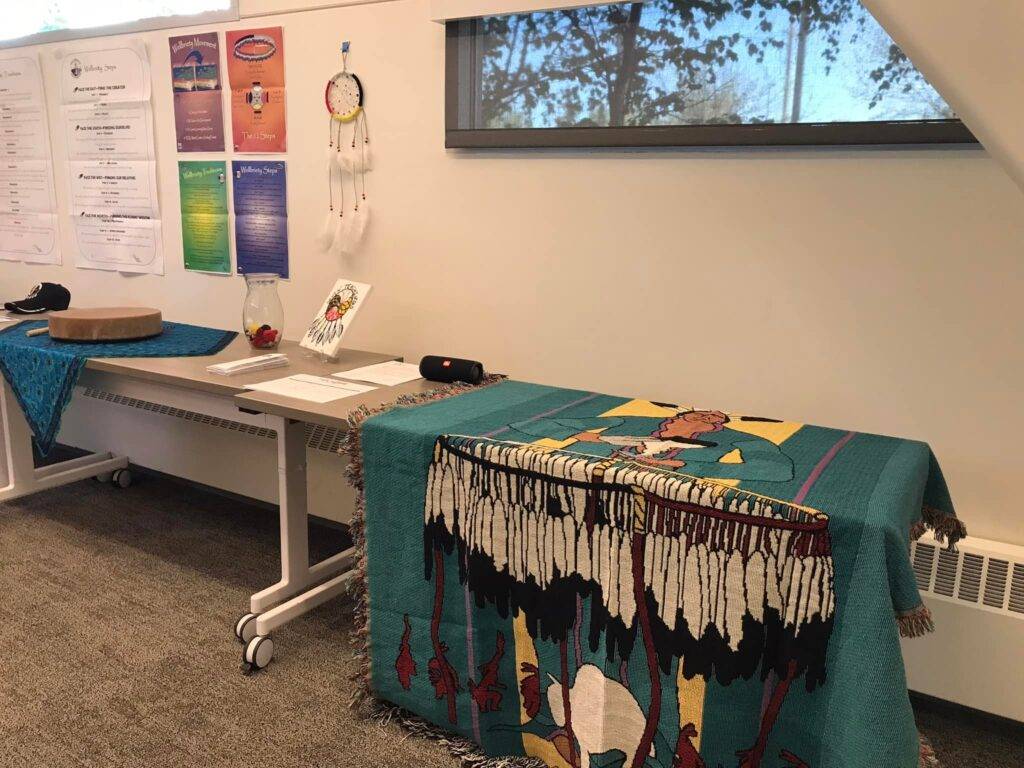
“Everyone has the opportunity to speak from the heart about what’s going on with them,” Tara said. “It’s a place where we can come and let everything out and leave it there in the circle.”
Other Wellbriety meetings feature guest speakers, book groups, or specific cultural activities, like beading, making jerky, and even “Native charades.”
For Heidi, sharing Wellbriety with others in recovery is a continuation of her own experience of reconnecting with and involving others in Alaska Native culture.
“Growing up in an urban setting, I really clung to my biggest role model, my great grandfather, Larry Matfay, from Kodiak island, who revived our culture when it was dying, back in the ’80s,” she recalled. “He’s my inspiration to keep this connection going for the next generations. Wellbriety provides that feeling, that you’re talking to that aunt or that grandpa and getting guidance from your community.”
Wellbriety meetings are open to anyone on their recovery journey. Check the CITC calendar for upcoming meetings, or reach out to the Peer Support team at (907) 793-3200 or rs@citci.org.
